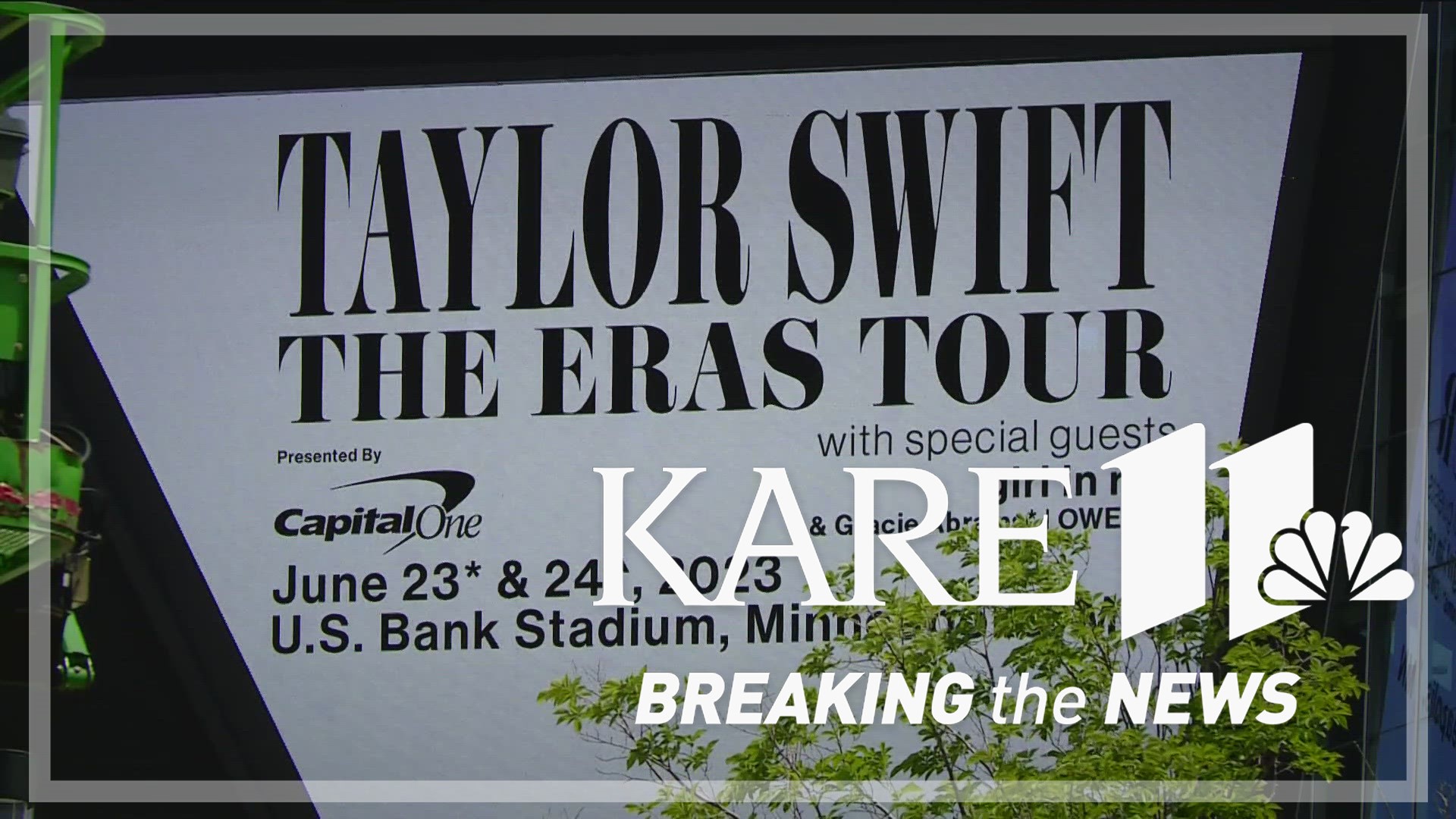ST PAUL, Minn. — State lawmakers Thursday passed a bill aimed at letting music and sports fans see the true price of the tickets they're on the verge of purchasing.
Rep. Kelly Moller's Ticketing Fairness Act passed with an overwhelming bipartisan tally of 112 to 18, after a relatively short debate. The bill number -- House File 1989 -- appears to be a clear reference to Taylor Swift's popular 2014 studio album and the date of the artist's birth.
Rep. Moller, a Shoreview Democrat, was spurred to take on the bill after feeling burned by the 2023 Eras Tour ticket sales process.
"It's a bill I started working on over a year ago after the ticketing debacle when Taylor Swift Eras tickets went on sale," Moller told her colleagues.
She signed up to get a pre-sale code, but the code never came, and she wasn't able to buy tickets. Moller heard from many of her fellow Swifties about their own troubles, including surprise fees at the end of the process.
"I know a young woman named Laura who had put a personal cap on the amount she wanted to spend on a ticket at $500, and then she was stunned when she made it all the way to the end and found out there was $100 in fees added on to that $500 ticket. Of course, she didn't want to back out at that point, afraid she wouldn't be able to get any tickets if she did that."
Moller's bill would require fees on event tickets be disclosed up front. It's something Mike Dean would've liked when his daughter Caroline asked to go to the Big Ten Women's Basketball tournament to see Caitlin Clark.
"I couldn't refuse as a father, went online, started the process of purchasing the tickets. They said they were $75 but by the time I got to the end they ended up being almost $130 dollars with four or five different kinds of service fees, convenience fees, all these things that really don't provide any value to the consumer but fundamentally charge people more money."
Dean ended up paying more than $500 for four tickets, which included tickets for two of Caroline's friends.
Would he have done things differently if he knew the full price ahead of time?
"I would've made different decisions. Honestly, she wouldn't have been able to bring two friends. That's the reality. That's the problem with the situation. We budget, trying to be wise with our money, but they're not sharing the exact amount up front."
Moller's bill would also bar speculative ticketing -- when the resale market sells tickets that haven't gone on sale yet. It also targets fake websites that pretend to be the original venue selling or re-selling tickets.
"It requires all-in pricing whenever a ticket is sold or resold," Moller explained. "So, this allows consumers to know upfront what the total cost of the ticket is going to be before they get to that very end screen and have only a couple of minutes to make a decision."
Moller refrained from dropping in Swift lyrics for most of the debate, but in her final pitch she couldn't resist.
"I would love to get bipartisan support, and I have a blank space and I'm glad to write your name. Thanks, Madame Speaker!"
The Senate version of the bill has passed through all committees and awaits action on the Senate floor. The lead author, Sen. Matt Klein, said the bill is more likely to be folded into the Senate's omnibus commerce bill later in the session.
The House also passed a related price transparency bill from Minneapolis Democrat Emma Green. It would outlaw "junk fees" added to the price of goods and services. Greenman told colleagues those fees are "nickel and diming" Minnesotans.
"Sometimes they're called convenience fees, wellness fees, resort fees, service and processing fees, handling fees, connection fees, facilities fees, and a new one this week, an inflation fee," Greenman told reporters.
Her bill would require the fees to be folded into the advertised price of the item.
"Instead of a $27 hamburger plus a $3 fee, you've be buying a $30 hamburger. But you'd know from the start what you'll be paying."
Greenman's bill drew opposition from Republicans, who called it an onerous mandate on businesses. It passed on a straight party line vote with all 70 Democrats voting in favor, and 61 Republicans voting against it.

